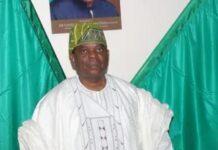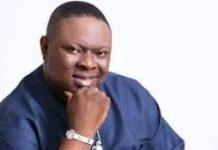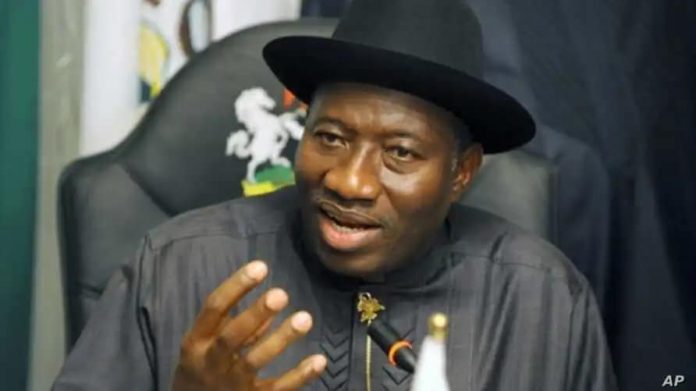
Ahead of the 2023 general elections, a lot of opipions have been expressed by different stakeholders at different fora in recent times over the eligibility or otherwise of former president, Dr. Goodluck Jonathan to gun for the highest political office in the land. For instance, Femi Falana (SAN) has pontificated that ex-President Dr. Goodluck Jonathan cannot run for the office of president again. The learned silk predicated his argument on Section 137 (3) of the 1999 Constitution of the Federal Republic of Nigeria (as amended) which, according to him, bars the former president from contesting again in 2023.
.
He stated: “It has been confirmed that former President Goodluck Jonathan has decided to join the All Progressives Congress, APC, to contest the 2023 presidential election. “However, the former President is disqualified from contesting the said election by 137 (3) of the Constitution of the Federal Republic of Nigeria, 1999 as amended which provides as follows: “‘A person who was sworn in to complete the term for which another person was elected as President shall not be elected to such office for more than a single term.’”
While the above provisions of the constitution are crystal clear and should be given their natural and ordinary meaning, I respectfully disagree with the construction given to it by Femi Falana (SAN). Before taking a closer look at the relevant judicial and constitutional provisions, let’s refresh our minds with the relevant timelines.
On May 5th 2010, the then Acting President Dr. Goodluck Ebele Jonathan was sworn-in as the substantive President of the Federal Republic of Nigeria by the Chief Justice of Nigeria, Aloysius Katsina-Alu at the Presidential Villa wherein he served out the remainder of late Umaru Yar’adua’s term which ended on May 29 2011.
He was also sworn in for another term on May 29, 2011, after he won the presidential poll of that year.
Dection 137 (3) of the Constitution 1999 (as amended) was signed into law by President Muhammadu Buhari in 2018.
It is submitted thst as far as the law is concerned, this issue can be resolved by the application of the presumption against retrospective legislation. Thus, unless it is expressly provided for, statutes do not operate retrospectively in respect to substantive law (as opposed to procedural law).
In Olaniyi v. Aroyehun (1991) 5 NWLR (pt.194) 652 at 691 Nnameka-Agu JSC, (of blessed memory) stated the law particularly with regard to the interpretation and application of the provisions of the Constitution as follows –
“First, the Constitution was not made to have retrospective effect. A Constitution like other statutes, operates prospectively and not retrospectively unless it is expressly provided to be otherwise. Such a legislation affects only rights which come into existence after it has been passed. See, on this, Smith v. Callander (1901) A.C. 297; also Re-Snowdon Colliery Co. Ltd. (1925) 94 L.J. Ch. 305. Secondly, it is a fundamental principle of our law that rights of parties in an issue in litigation are decided on the basis of the substantive or organic law in force at the time of the act in question.”
In the circumstances of the present scenario where the relevant amended provision (section 137 (3) of the Constitution) was signed into law by President Muhammadu Buhari in 2018 and same came into effect only from 2018, the same cannot be interpreted retrospectively to cover an event in 2010. Though, “was” is used in the section in question, it only refers to tenure of office which would have been completed by the Vice President or Deputy Governor from the date the provision came into effect (2018) and not any date before the amendment.
See Marwa & Ors. v. Nyako & Ors. (2012) LPELR-7837; (2012) All FWLR (Pt. 622) 1622, Per Mohammed, J.S.C. for a similar application of an amended constituiinal provision.
In the light of the extant law, it is subsmited conclusively that the learned silk’s interpretation of the constitution, with due respect, is misconceived in that the said section of the constitution is prospective in outlook and it is inapplicable to an event that occurred in 2010, the use of “was” notwithstanding. If the lawmakers had intended a retroactive interpretation, they woukd have expressly provided for it. Therefore, Dr. Goodluck Ebele Jonathan suffers no disability under the said constitution to contest for the office of the president of the Federal Republic of Nigeria, if he opts to run.
Kindly contact us @ Naijalivetv@gmail.com
Call or Whatsapp: 07035262029, 07016666694, 08129340000


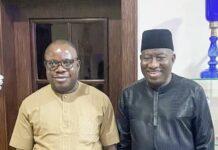
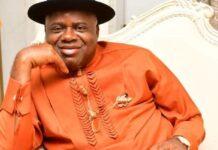
![Ex-President Jonathan’s Elder Sister Buried In Bayelsa [PHOTOS]](https://www.naijalivetv.com/wp-content/uploads/2024/02/IMG_0533-218x150.jpeg)
